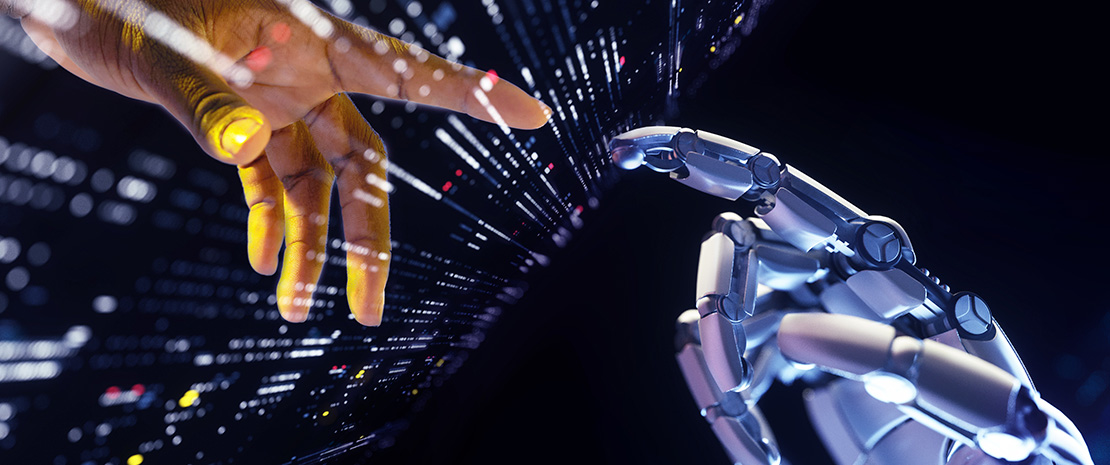Select a Country Site
Changing your site will take you to the URL for that ManpowerGroup location.

In today's rapidly evolving workplace, professionals find themselves navigating a fundamental shift: learning to work effectively alongside artificial intelligence. As generative and agentic AI transform jobs in real-time, how are employees and employers adapting to maximize this partnership?
Our newBuilding and Sustaining a Meaningful Career in the AI Agewhitepaper provides compelling insights into this question. Drawing from ManpowerGroup's extensive 2025 Employment Outlook Survey and Experis CIO Outlook research, we've uncovered a portrait of modern workforce challenges, employer expectations, and strategic approaches for career durability.
Key Findings: The AI Reality Gap
The data tells a fascinating story of how organizations and individuals are responding to AI integration:
53% of employersare currently leveraging AI tools in hiring and onboarding talent.
85% of employersbelieve it's acceptable for candidates to use AI during the hiring process.
Only10% of CIOs and senior tech leaderssay AI is fully integrated across their organization.
This isn't a contradiction—it's an opportunity. Today's most successful professionals aren't seeing AI as a threat; they're developing integrated approaches where AI serves as a partner that handles routine tasks while humans focus on nuanced activities where they excel.
The Human-AI Partnership
Our research revealed that approximately one-third of employers believe AI cannot replace or augment critical human skills such as:
Ethical judgment (33%)
Personalized customer service (31%)
Team management (30%)
Communication (27%)
Strategic thinking (27%)
The concern that AI will result in mass layoffs remains largely unfounded. Our global employment outlook surveys continue to show net positive hiring demand across industries. The key distinction? Workers who can meet employers where they are—and then suggest techniques to take AI usage to the next level—will be the most marketable and valuable.
The Employee Perspective: Confidence Amid Change
While technological change often breeds anxiety, our research found encouraging signs of workforce resilience:
87% of employeeshave moderate to high confidence in their ability to perform their jobs.
78% believethey have the right technology and tools to do their jobs effectively.
However, our research shows that employees with lower AI literacy levels tend to express more negative views toward workplace AI adoption. Those with limited AI knowledge and experience often report higher levels of anxiety and resistance to incorporating these tools into their daily work.
AI Career Durability: Your Action Plan
For professionals looking to future-proof their careers, our research suggests several key strategies:
Understand career durability fundamentals- Build skills across five pillars: hard skills, soft skills, institutional knowledge, applied technology skills, and a growth mindset.
Learn about AI implementations in your workplace- Connect with IT representatives to understand what your organization is deploying and how you might contribute to testing or implementation.
Research AI use cases for your role- Discover how other organizations in your function are already leveraging AI to improve business outcomes.
Pursue relevant training- Take advantage of both company-sponsored and free online offerings to master cutting-edge skills like prompt engineering.
Gain buy-in for a small pilot- Present a clear business case for an AI implementation in your role or group with metrics for success.
The most successful professionals aren't simply reacting to technological change—they're proactively redesigning their roles to leverage AI for routine tasks while developing complementary human skills like judgment, ethical oversight, and creative problem-solving.
Employer Imperatives
For organizations looking to support workforce transformation:
Consider augmentation over automation- Recognize that AI typically augments human work rather than fully automating it.
Provide ongoing upskilling initiatives- Well-designed training programs integrating real-world practice using AI tools can significantly shorten skill acquisition time.
Incorporate human oversight- Every AI implementation should benefit from human translation and ethical judgment.
Master internal integration before external commercialization- Deploy AI internally first to increase operational efficiency before incorporating it into customer-facing products and services.
Seize the AI Advantage: Your Career Renaissance Starts Now
The AI revolution isn't something happening to you—it's something happening for you. The data is clear: organizations still depend on human skills like ethical judgment, strategic thinking, and interpersonal connection that AI simply cannot replicate.
The professionals who will thrive aren't those with the most technical knowledge, but those who masterfully blend AI capabilities with distinctly human strengths. They're redesigning their careers in real-time, positioning themselves as indispensable translators between technology's capabilities and business needs.
Are you ready to transform your career for the AI age? Or will you be left behind as employers recruit people equipped with AI-enhanced skillsets they're actively seeking? The choice is yours.